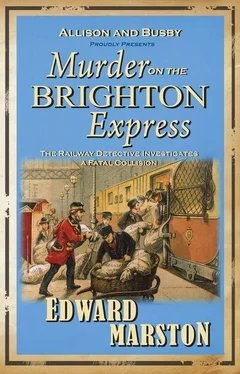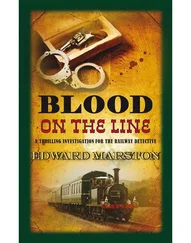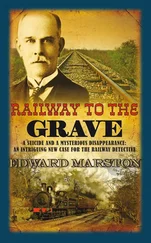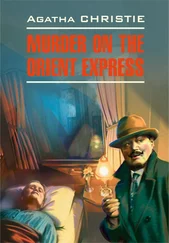Edward Marston - Murder on the Brighton express
Здесь есть возможность читать онлайн «Edward Marston - Murder on the Brighton express» весь текст электронной книги совершенно бесплатно (целиком полную версию без сокращений). В некоторых случаях можно слушать аудио, скачать через торрент в формате fb2 и присутствует краткое содержание. Жанр: Классический детектив, на английском языке. Описание произведения, (предисловие) а так же отзывы посетителей доступны на портале библиотеки ЛибКат.
- Название:Murder on the Brighton express
- Автор:
- Жанр:
- Год:неизвестен
- ISBN:нет данных
- Рейтинг книги:4 / 5. Голосов: 1
-
Избранное:Добавить в избранное
- Отзывы:
-
Ваша оценка:
- 80
- 1
- 2
- 3
- 4
- 5
Murder on the Brighton express: краткое содержание, описание и аннотация
Предлагаем к чтению аннотацию, описание, краткое содержание или предисловие (зависит от того, что написал сам автор книги «Murder on the Brighton express»). Если вы не нашли необходимую информацию о книге — напишите в комментариях, мы постараемся отыскать её.
Murder on the Brighton express — читать онлайн бесплатно полную книгу (весь текст) целиком
Ниже представлен текст книги, разбитый по страницам. Система сохранения места последней прочитанной страницы, позволяет с удобством читать онлайн бесплатно книгу «Murder on the Brighton express», без необходимости каждый раз заново искать на чём Вы остановились. Поставьте закладку, и сможете в любой момент перейти на страницу, на которой закончили чтение.
Интервал:
Закладка:
'What did you think when you heard the news of the crash?'
'I was profoundly shocked,' said Shanklin, 'as anyone would be at such horrific news. Deaths and injuries on the railway always disturb me.'
'The very thought of them terrifies me,' said Leeming.
'When I worked for the LB amp;SCR, my job entailed responsibility for safety on the line. If there was even the slightest mishap, I felt it as a personal failure.' He bit his lip. 'I'm just relieved that I was not still with the company when this disaster occurred.'
'Did you know anyone who might have travelled on the express?'
'Probably.'
'Could you give me their names, please?'
'No,' said Shanklin, curtly.
'But you do know people who travel on that train regularly?'
'What are you trying to get at, Sergeant Leeming?'
'Could one of them, perhaps, be Mr Horace Bardwell?'
Shanklin took refuge in silence once more, staring fixedly at his desk and fiddling nervously with a sheet of paper. Leeming could see how concerned the man was. He did not, however, press him. He watched and waited until Shanklin was ready to speak.
'Tell me, Sergeant,' he began, turning to look up at him.
'Have you ever been certain of a man's guilt yet unable to prove it?'
'That's happened to me a number of times, sir,' said Leeming, ruefully. 'I've often had to watch guilty men walk free from court because I was unable to find enough evidence to convict them.'
'Then you'll understand my position with regard to Mr Bardwell.'
'I don't follow.'
'I lacked sufficient evidence.'
Leeming blinked. 'Are you accusing Mr Bardwell of a crime?'
'Yes,' said Shanklin, gloomily, 'and a lot of good it did me. I lost my job, my friends and my reputation at the LB amp;SCR. Mr Bardwell saw to that. He's the person who should have been ousted – not me.'
'What charge would you lay against him, sir?'
'Fraud.'
'That's a very serious accusation.'
'I had good reason to make it, believe me. It was my misfortune to stumble upon a document written by Horace Bardwell, a man whom I had always respected. Well,' said Shanklin, grinding his teeth, 'I don't respect him now.'
'Why is that, sir?'
'What I had seen was an attempt to falsify our share prospectus, to lure investors into parting with their money on the strength of bogus promises. I need hardly tell you that the Railway Mania of the last decade led to all kinds of financial upheavals.'
'Yes,' said Leeming. 'People no longer think that investing in a railway company is a licence to print money.'
'Dividends are shrinking on all sides, Sergeant. I doubt if the LB amp;SCR will be able to pay its shareholders more than six per cent next year, possibly less.'
'I assume that Mr Bardwell was offering much more.'
'He was trying to defraud people,' said Shanklin with disgust. 'The prospectus was full of misleading statements and downright lies. I was so outraged that I confronted him about it.'
'How did he react?' wondered Leeming.
'First of all, he pretended that it was not his handwriting. Then, when that excuse wouldn't work, he claimed that it was a first draft that he intended to change substantially. I refused to accept that and Mr Bardwell became angry. He threatened to ruin me.'
'Why didn't you report your findings to the other directors?'
'That's exactly what I did, Sergeant,' replied Shanklin. 'They asked me to produce evidence but the document in question had already been destroyed by Mr Bardwell. It was his word against mine.' He ran a hand over his bald pate. 'I was dismissed on the spot.'
While he was not convinced that he had heard the whole story, Leeming did not ask for more detail. What he had uncovered was a justifiable grudge against Bardwell, one strong enough, perhaps, to impel Shanklin to seek revenge against the man.
'Horace Bardwell was injured in that crash,' said Leeming. 'How would you feel if you learnt that he had, in fact, been killed?'
Shanklin was forthright. 'I'd be absolutely delighted.'
During his visit to the hospital, Colbeck took the opportunity to speak to a number of the survivors of the crash, comparing their estimates of the speed at which the train was travelling and the way they had reacted when it came off the rails. Several spoke gratefully of the way that the Reverend Ezra Follis had helped them in the immediate aftermath, though one man had been highly alarmed by the sight of the clergyman, fearing that he had come to perform last rites. Colbeck found two people who had actually shared Follis's carriage. Terence Giddens, the red-faced banker, was still desperate to be discharged from the hospital. He kept glancing anxiously at the door as if afraid that an unwanted visitor would walk through it.
Daisy Perriam had been the only woman in the carriage but the beauty that had attracted her travelling companions was now masked by ugly facial cuts and bruises. She had sustained cracked ribs during the crash and a broken wrist. The injury that really distressed her, however, was the crushed foot. She would never walk properly again. When Colbeck pointed out that she was lucky to survive, she burst into tears.
'I'd rather have died,' she wailed, tears streaming down her cheeks. 'What kind of a life do I face now? It will be a nightmare.'
'Do your family know what happened to you?' asked Colbeck.
'No, Inspector, and I hope that they never do.'
On that mystifying note, Colbeck left the hospital and made his way to the railway station, a striking piece of architecture. It was late in the evening when he at last returned to Scotland Yard. The distinctive whiff of cigar smoke from the superintendent's office told him that Edward Tallis was still there. A confirmed bachelor with scant interest in a social life, Tallis had dedicated himself completely to the never-ending fight against crime. Colbeck tapped on his door, entered in response to a brusque command and caught the superintendent in the act of stubbing out his cigar in an ashtray.
'Ah,' said Tallis, sarcastically, 'the Prodigal Son returns!'
'Does that mean you have a fatted calf roasting on the spit, sir?'
'No, Inspector.'
'Then perhaps you should read your Bible,' suggested Colbeck.
Tallis sat up indignantly. 'I study it every day and am well-acquainted with its contents,' he affirmed. 'If everyone in this blighted city was as devout and God-fearing as me, there'd be no need for a Metropolitan Police Force.'
'I beg to differ, sir. You'd need hundreds of constables to control the masses fighting to get into the churches.'
'Are you being facetious, Colbeck?
'Light drollery was the most I was attempting.'
'It has no place whatsoever in a criminal investigation.'
While Colbeck disagreed, he knew that it was not the moment to debate the subject. Tallis believed that a sense of humour was a sign of weakness in a man's character. If he ever found something even remotely amusing, the superintendent made sure that nobody else ever found out about it. Waving Colbeck to a chair, he picked up a sheet of paper from his desk.
'This is a report from Sergeant Leeming,' he declared.
'Thank you, sir,' said Colbeck, taking it from him. 'I'll be very interested to see it. Victor and I were dealing with two ends of a problematical relationship. While he was calling on Matthew Shanklin, I was visiting Horace Bardwell at the county hospital in Brighton.'
'How is he?'
'He's very poorly, I'm afraid. He's lost his sight as a result of the accident and took such a blow to the head that he's in a state of great confusion.' As he was talking, Colbeck was reading Leeming's account of the interview with Shanklin. 'This could be significant,' he went on. 'Victor has probed quite deeply.'
'I want to hear about Mr Bardwell.'
Читать дальшеИнтервал:
Закладка:
Похожие книги на «Murder on the Brighton express»
Представляем Вашему вниманию похожие книги на «Murder on the Brighton express» списком для выбора. Мы отобрали схожую по названию и смыслу литературу в надежде предоставить читателям больше вариантов отыскать новые, интересные, ещё непрочитанные произведения.
Обсуждение, отзывы о книге «Murder on the Brighton express» и просто собственные мнения читателей. Оставьте ваши комментарии, напишите, что Вы думаете о произведении, его смысле или главных героях. Укажите что конкретно понравилось, а что нет, и почему Вы так считаете.












